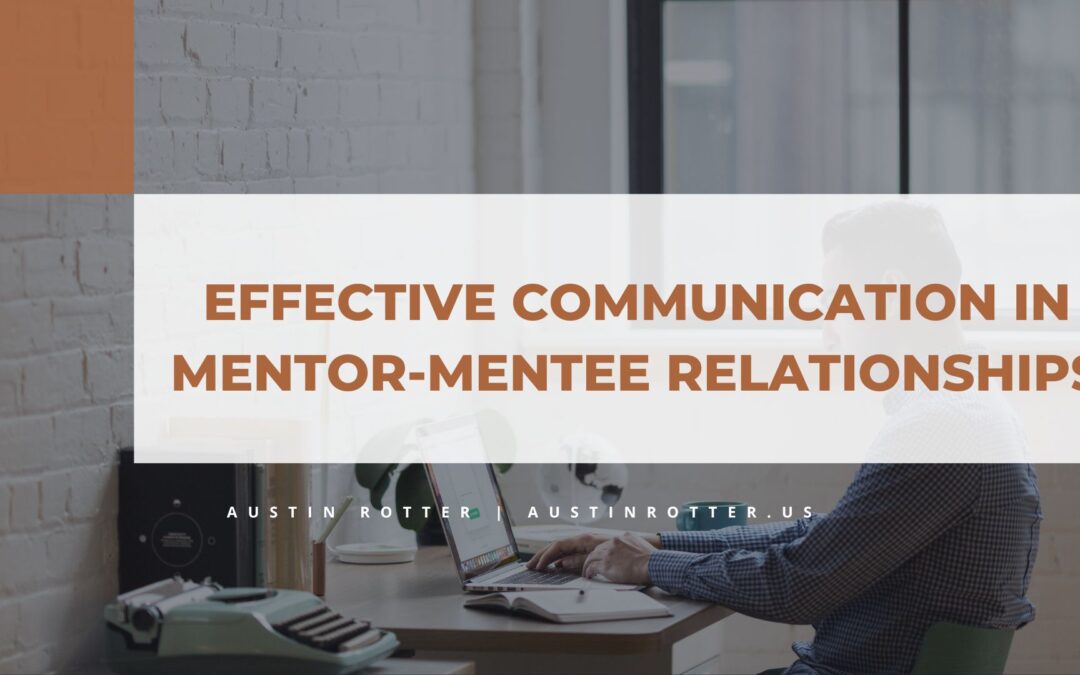Mentorship is a transformative journey where wisdom is imparted, skills are refined, and lasting professional connections are forged. At the heart of successful mentor-mentee relationships lies effective communication. The ability to convey thoughts, share insights, and listen actively creates an environment where mentorship thrives.
Establishing Clear Expectations
Effective communication in mentor-mentee relationships begins with setting clear expectations. Mentors and mentees should openly discuss their goals, preferences, and boundaries to ensure alignment. Understanding each other’s expectations from the outset creates a foundation for a transparent and productive mentoring journey.
Open and Honest Dialogue
Transparency is a cornerstone of effective communication. Both mentors and mentees should feel comfortable expressing their thoughts, concerns, and aspirations openly. An atmosphere of trust fosters a more profound understanding, allowing mentees to seek guidance without hesitation and mentors to provide constructive feedback.
Active Listening
Active listening is a skill that empowers mentors to understand their mentees‘ perspectives truly. By attentively processing information, mentors can provide tailored guidance and support. Similarly, mentees benefit from active listening by comprehending the wisdom shared by their mentors, making the communication process a two-way street.
Constructive Feedback
Constructive feedback is a powerful tool in mentorship. Influential mentors provide specific, actionable feedback aimed at fostering growth. On the other hand, mentees should be receptive to feedback, viewing it as an opportunity for improvement rather than criticism. This dynamic exchange of insights contributes to a culture of continuous learning.
Regular Check-Ins
Consistent communication is critical to the success of any mentor-mentee relationship. Regular check-ins, whether in the form of scheduled meetings or informal conversations, provide opportunities to discuss progress, challenges, and evolving goals. This ongoing dialogue ensures that both parties stay engaged and connected throughout the mentorship journey.
Goal Alignment and Progress Tracking
Clearly defined goals serve as a roadmap for mentor-mentee relationships. Effective communication involves regularly revisiting and refining these goals based on evolving needs. Mentors guide mentees in aligning their objectives with broader career aspirations while mentees actively communicate their progress, challenges, and areas requiring further support.
Flexibility in Communication Styles
Individuals have diverse communication styles, and influential mentors adapt to the preferences of their mentees. Whether through face-to-face meetings, virtual communication, or a combination, mentors should consider the most comfortable and effective channels for their mentees. This flexibility ensures that communication remains accessible and engaging.
Celebrating Achievements and Milestones
Acknowledging and celebrating achievements, both big and small, is vital to effective communication in mentorship. Mentors should actively recognize and commend their mentees’ successes, reinforcing positive behavior and motivating continued effort. This positive reinforcement strengthens the mentor-mentee bond and inspires ongoing commitment to growth.
Conclusion
Effective communication is the linchpin of successful mentor-mentee relationships. By fostering clear expectations, embracing open and honest dialogue, practicing active listening, providing constructive feedback, and maintaining regular check-ins, mentors and mentees can create an environment conducive to growth and development.
The journey of mentorship is a shared experience, and effective communication ensures that mentors and mentees actively contribute to each other’s success. Through ongoing dialogue, goal alignment, flexibility, and the celebration of achievements, mentorship becomes a dynamic exchange that imparts knowledge and cultivates enduring professional connections. As mentor and mentee engage in open communication, they embark on a collaborative journey of learning, development, and mutual inspiration.
